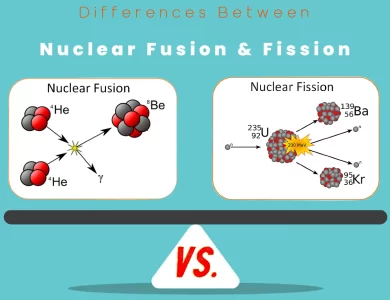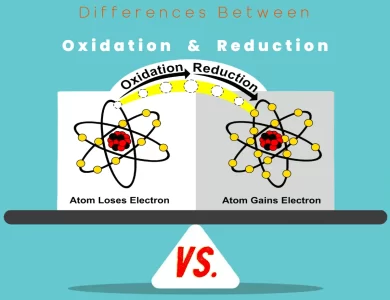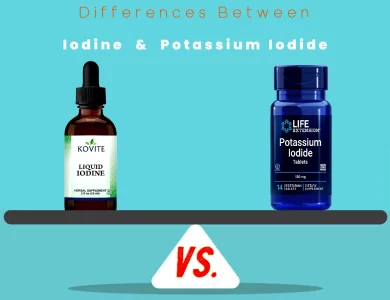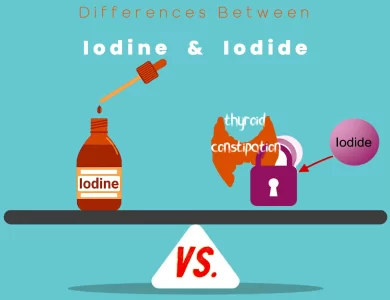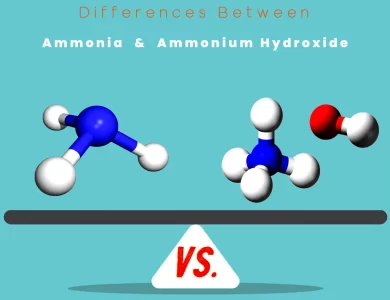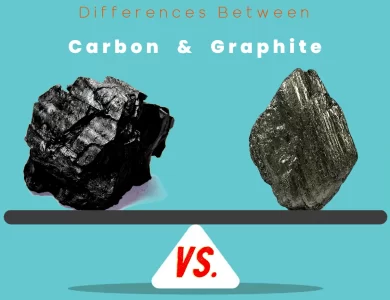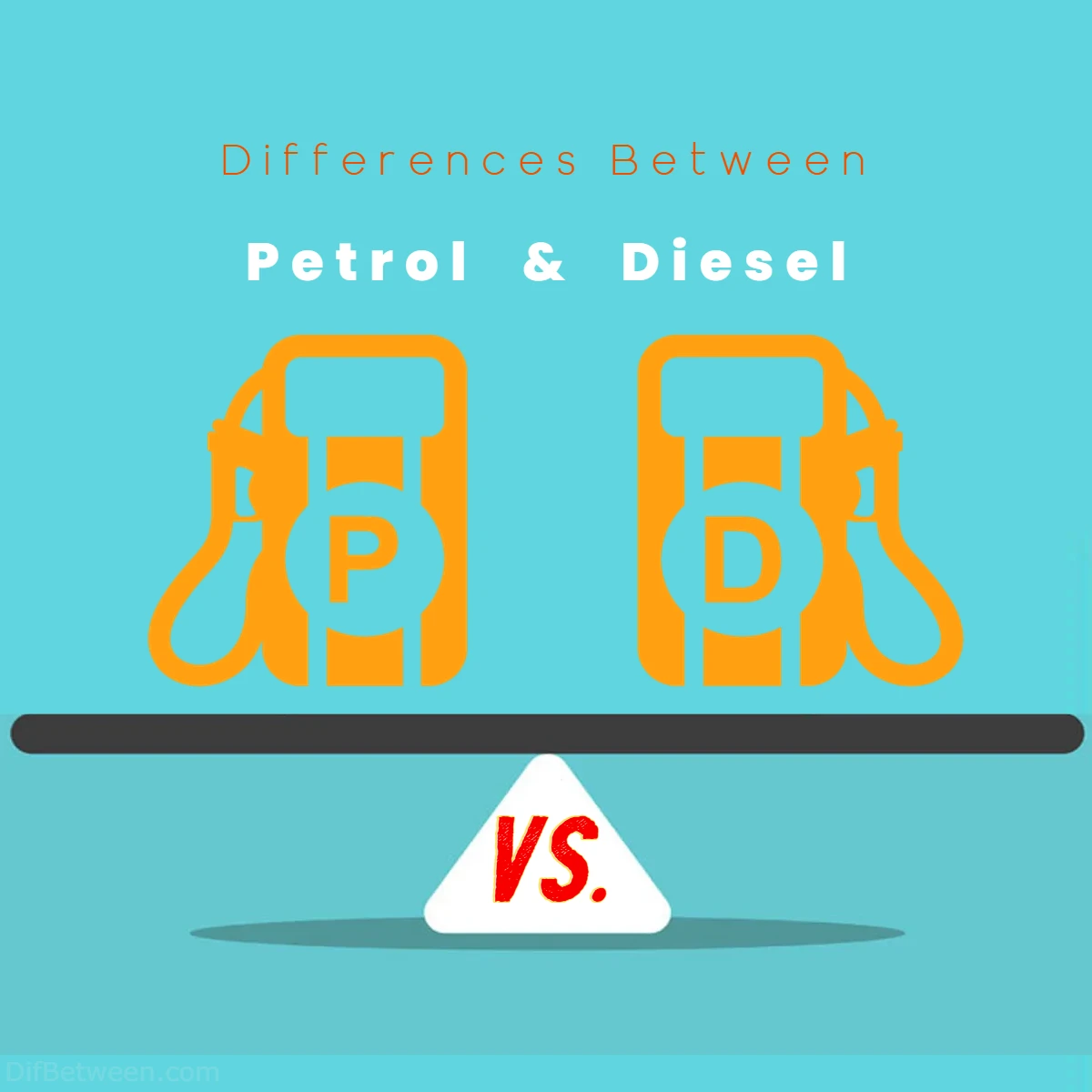
| Aspect | Petrol (Gasoline) | Diesel |
|---|---|---|
| Fuel Composition | Refined liquid primarily of hydrocarbons | Higher concentration of hydrocarbons |
| Ignition Process | Spark plugs initiate combustion | Compression-ignition relies on heat from compression |
| Ideal Driving Habits | City driving, stop-and-go traffic | Long-distance travel, highway cruising, towing |
| Fuel Efficiency | Lower fuel efficiency at cruising speeds | Better fuel efficiency and longer driving ranges |
| Vehicle Types | Passenger cars, sports cars, urban vehicles | Trucks, SUVs, commercial vehicles, heavy-duty |
| Environmental Impact | CO2 emissions, NOx, VOCs emissions | Historically higher PM and NOx emissions |
| Resale Value & Depreciation | Varied resale value, potentially slower depreciation | Generally holds value well, slower depreciation |
| Maintenance Costs & Reliability | Lower maintenance costs, reliable when maintained | Higher maintenance costs, durable when well-maintained |
| Cold Weather Performance | Ideal for cold starts, lower risk of fuel gelling | Challenges in extremely cold weather, may require additional measures |
| Noise and Vibration | Quieter operation, smoother ride | Noisier operation, more prone to vibration |
| Performance and Torque | Responsive acceleration, high RPM | High torque at low RPM, ideal for towing and heavy loads |
| Fuel Availability and Cost | Widespread availability, lower cost in many regions | Readily available, slightly higher cost in some regions |
| Engine Longevity and Maintenance | Generally longer lifespan when well-maintained | Durable and long-lasting with proper maintenance |
| Emissions Control | Incorporates emission control technologies | Advanced emissions control systems for cleaner operation |
| Future Trends | Evolving with hybrid and electrification technology | May transition to alternative fuels and electrification |
In the realm of automotive decisions, the choice between petrol (gasoline) and diesel is akin to choosing the path less traveled or the well-worn road. Each fuel has its unique characteristics and advantages, but which one is right for you?
Differences Between Petrol and Diesel
The main differences between petrol and diesel lie in their composition, ignition process, and ideal use cases. Petrol, derived from crude oil, ignites using spark plugs and excels in city driving and quick acceleration. Diesel, with a higher hydrocarbon concentration, relies on compression-ignition and offers better fuel efficiency, making it suitable for long-distance travel and heavy-duty applications. Understanding these fundamental distinctions is key when deciding between the two fuels.
Fuel Composition and Combustion
Petrol:
Petrol, also known as gasoline in some regions, is a petroleum-based fuel primarily composed of hydrocarbons derived from crude oil. It is a highly refined and volatile liquid, known for its clean-burning properties. The combustion process in petrol engines is initiated by spark plugs, which ignite the air-fuel mixture, producing a controlled explosion within the engine’s cylinders. This explosion drives the piston and ultimately powers the vehicle.
One of the distinctive features of petrol is its relatively low ignition temperature, which makes it highly suitable for spark-ignition engines. This characteristic allows for quicker and smoother engine startups, making petrol engines a popular choice for most passenger vehicles.
Diesel:
Diesel fuel is also derived from crude oil but has a different chemical composition compared to petrol. It contains a higher concentration of hydrocarbons, and its ignition occurs solely due to the heat generated during the compression stroke in diesel engines. Diesel engines compress the air within the cylinder to a high temperature and pressure, causing the diesel fuel to spontaneously ignite when injected into the hot, compressed air.
This compression-ignition process is the primary reason why diesel engines are often referred to as “compression-ignition engines.” It’s worth noting that diesel engines do not use spark plugs like petrol engines do.
Energy Density and Efficiency
Petrol:
One of the advantages of petrol is its relatively high energy density. Energy density refers to the amount of energy that can be stored in a given volume of fuel. Petrol packs a lot of energy into a small volume, which means that vehicles running on petrol can carry less fuel while still covering a significant distance.
Petrol engines tend to be more fuel-efficient at lower speeds and in stop-and-go traffic situations. They are known for their responsiveness and smooth acceleration. However, petrol engines may experience reduced efficiency at high speeds or under heavy loads.
Diesel:
Diesel fuel boasts an even higher energy density than petrol. This higher energy content provides diesel engines with several advantages. Diesel vehicles typically have better fuel efficiency, which means they can cover more miles per gallon of fuel compared to petrol vehicles.
Diesel engines are well-suited for high-torque applications, making them popular choices for trucks, buses, and industrial equipment. They excel at providing power under heavy loads and are known for their durability. However, diesel engines may not offer the same level of responsiveness and quick acceleration as petrol engines, particularly at lower speeds.
Emissions and Environmental Impact
Petrol:
While petrol engines are known for their quick starts and smoother operation, they tend to produce more carbon dioxide (CO2) emissions per unit of energy compared to diesel engines. CO2 is a greenhouse gas that contributes to climate change. Additionally, petrol engines emit a variety of other pollutants, such as nitrogen oxides (NOx) and volatile organic compounds (VOCs), which can contribute to smog formation and air quality issues.
To mitigate these environmental concerns, modern petrol engines are often equipped with emission control technologies, such as catalytic converters, to reduce harmful emissions. Additionally, some regions have adopted stricter fuel quality standards for petrol to minimize its environmental impact.
Diesel:
Diesel engines have historically been associated with higher emissions of particulate matter (PM) and NOx. Particulate matter consists of tiny particles and droplets that can have adverse health effects when inhaled. NOx emissions contribute to smog formation and can have negative environmental and health consequences.
However, advancements in diesel engine technology and emissions control systems have significantly improved the environmental performance of diesel vehicles. Ultra-low sulfur diesel fuel, combined with advanced exhaust aftertreatment systems like diesel particulate filters (DPF) and selective catalytic reduction (SCR), has led to substantial reductions in diesel emissions. As a result, modern diesel engines are much cleaner than their predecessors and meet stringent emissions standards in many regions.
Fuel Availability and Cost
Petrol:
Petrol is widely available in most parts of the world, making it convenient for owners of petrol-powered vehicles to find refueling stations. The pricing of petrol can vary significantly depending on factors such as crude oil prices, taxes, and regional supply and demand. Generally, petrol tends to be slightly more expensive than diesel on a per-gallon or per-liter basis in many regions.
Diesel:
Diesel fuel is also readily available in most regions, particularly in areas with a significant number of commercial vehicles. It is commonly used for trucks, buses, and industrial equipment, making it easy to find diesel refueling stations. Historically, diesel has been priced lower than petrol, but this can vary depending on local market conditions.
It’s important to note that the fuel efficiency of diesel engines can partially offset the higher per-unit cost of diesel fuel, potentially resulting in similar or lower overall fuel expenses for diesel vehicle owners.
Engine Longevity and Maintenance
Petrol:
Petrol engines are generally known for their smooth operation and lower levels of vibration. They tend to have a lighter and more compact design, which can contribute to a longer lifespan when properly maintained. Petrol engines often require less frequent maintenance, and their components may have a longer service life compared to diesel engines.
Regular maintenance for petrol engines typically includes oil changes, spark plug replacements, and air filter replacements. While these tasks are relatively straightforward, neglecting them can lead to reduced engine performance and efficiency.
Diesel:
Diesel engines are renowned for their durability and longevity. They are built to withstand higher levels of stress and compression, which can result in a longer operational life. Many diesel engines have a reputation for running reliably well into high mileage ranges.
Maintenance requirements for diesel engines may include periodic fuel filter changes, turbocharger inspections, and attention to glow plugs (for cold starts). While diesel engines are robust, neglecting maintenance can still lead to issues, and repairs can be more costly due to their complexity.
Cold Weather Performance
Petrol:
Petrol engines tend to perform better in cold weather conditions compared to diesel engines. Petrol has a lower freezing point, which means it is less likely to gel or become thick and viscous in very cold temperatures. This characteristic makes petrol engines more suitable for regions with extreme winters.
Additionally, petrol engines typically use spark plugs for ignition, which aids in cold starts. The spark plugs generate heat, making it easier to ignite the air-fuel mixture in cold weather.
Diesel:
Diesel engines can face challenges in extremely cold weather. Diesel fuel has a higher freezing point than petrol, and in cold temperatures, it can gel or form wax crystals, which can clog fuel filters and inhibit fuel flow. To address this issue, winterized diesel fuel is often available in regions with cold climates. This fuel contains additives that lower the gel point, improving cold-weather performance.
In very cold conditions, diesel engines may require additional measures, such as block heaters or fuel additives, to ensure reliable starts. While modern diesel engines have made significant strides in cold-weather performance, petrol engines are generally more dependable in extreme cold.
Noise and Vibration
Petrol:
Petrol engines are known for their quieter operation compared to diesel engines. They produce less noise and vibration, contributing to a smoother and quieter ride. This characteristic is particularly appreciated in passenger vehicles, where comfort and noise levels are significant considerations.
The lower noise levels of petrol engines are due in part to their ignition system, which relies on spark plugs. The controlled combustion process in petrol engines results in less mechanical noise.
Diesel:
Diesel engines tend to be noisier and produce more vibration than petrol engines. The compression-ignition process, which relies on high-pressure ignition, generates more mechanical noise. While this may be less noticeable in larger vehicles like trucks and buses, it can be a concern in passenger cars and SUVs.
Modern diesel engines often incorporate sound-deadening materials and improved engine designs to mitigate noise and vibration. However, they still tend to be louder and more prone to vibration compared to petrol engines.
Performance and Torque
Petrol:
Petrol engines are known for their responsiveness and quick acceleration, particularly at lower speeds. They provide a smooth and enjoyable driving experience for those who appreciate a sportier feel behind the wheel. Petrol engines tend to have higher maximum RPMs (revolutions per minute), allowing for faster acceleration in some cases.
However, petrol engines may lack the low-end torque that diesel engines offer. Torque is the twisting force that helps with tasks like towing and climbing steep hills. While petrol engines can provide respectable torque, diesel engines excel in this department.
Diesel:
Diesel engines are prized for their high torque output, especially at low RPMs. This makes them ideal for applications that require substantial low-end power, such as towing heavy loads or navigating challenging terrain. Diesel vehicles often excel in situations where torque is critical, making them popular choices for trucks and SUVs used for off-road adventures.
While diesel engines may not offer the same level of high-RPM performance as petrol engines, they compensate with impressive low-end grunt. This characteristic can be a significant advantage in specific driving scenarios.
Environmental Regulations and Future Trends
Petrol:
Petrol engines have been the primary focus of environmental regulations in many regions due to their higher CO2 emissions and contribution to air pollution. As a result, manufacturers have been working on improving the efficiency and reducing the emissions of petrol engines. This has led to innovations such as turbocharging, direct injection, and hybrid technology.
In the future, petrol engines are likely to continue evolving, with a growing emphasis on electrification and hybridization to reduce their environmental impact. Hybrid vehicles combine a petrol engine with an electric motor to improve efficiency and reduce emissions during low-speed and stop-and-go driving.
Diesel:
Diesel engines have faced stringent emissions regulations, particularly regarding NOx and particulate matter emissions. The implementation of advanced emissions control systems, as mentioned earlier, has helped diesel engines meet these standards. However, the future of diesel engines may be more heavily influenced by electrification.
Many automotive manufacturers are investing in electric and hybrid technology for their future offerings. Electric vehicles (EVs) and hybrid electric vehicles (HEVs) are becoming increasingly popular as the automotive industry seeks to reduce its reliance on fossil fuels and lower emissions. As a result, the production of traditional diesel-powered vehicles may decrease over time.
Petrol or Diesel: Which One is Right Choose?
When it comes to choosing between petrol (gasoline) and diesel for your vehicle, you’re faced with a decision that goes beyond personal preference. Both fuels have distinct characteristics and advantages, making them suitable for different driving needs and lifestyles. In this guide, we’ll help you navigate the choice between petrol and diesel, ensuring you make an informed decision that aligns with your specific requirements.
Understanding the Fuel Basics
Before diving into the decision-making process, let’s establish a fundamental understanding of petrol and diesel fuels.
Petrol:
- Composition: Petrol is a refined petroleum-based fuel composed primarily of hydrocarbons derived from crude oil. It’s a clean-burning, highly refined liquid.
- Ignition: Petrol engines use spark plugs to initiate combustion, resulting in a controlled explosion within the engine’s cylinders. This process powers the vehicle.
- Key Characteristics: Petrol is known for its low ignition temperature, making it suitable for quick and smooth engine startups, especially in passenger vehicles.
Diesel:
- Composition: Diesel fuel is also derived from crude oil, but it has a different chemical composition compared to petrol. It contains a higher concentration of hydrocarbons.
- Ignition: Diesel engines rely on the heat generated during the compression stroke to ignite the diesel fuel. This compression-ignition process is a defining feature of diesel engines.
- Key Characteristics: Diesel fuel boasts a higher energy density, leading to better fuel efficiency. Diesel engines excel in delivering torque at low RPMs, making them ideal for heavy-duty applications.
Now, let’s explore the factors that should influence your decision when choosing between petrol and diesel.
1. Driving Habits and Usage
Your driving habits and how you plan to use your vehicle play a pivotal role in selecting the right fuel type.
Petrol:
- Ideal for city driving, short commutes, and stop-and-go traffic.
- Offers smooth and responsive acceleration at lower speeds.
- Suitable for urban environments where quick starts and quiet operation are essential.
Diesel:
- Well-suited for long-distance travel and highway cruising.
- Provides substantial low-end torque, making it excellent for towing and hauling.
- Ideal for off-road adventures and rugged terrain.
Consider your typical driving scenarios and whether you require the quick acceleration of petrol or the low-end power and efficiency of diesel.
2. Fuel Efficiency and Cost
Fuel efficiency not only impacts your wallet but also your environmental footprint.
Petrol:
- Generally has slightly lower fuel efficiency compared to diesel.
- Lower per-liter or per-gallon cost in many regions.
- Suitable for those who prioritize initial cost savings and drive shorter distances.
Diesel:
- Offers better fuel efficiency and longer driving ranges.
- Slightly higher per-liter or per-gallon cost in some regions.
- Ideal for those who cover substantial distances regularly and want to maximize fuel economy.
Calculate your expected fuel consumption based on your driving patterns to determine whether the fuel savings of diesel justify the potentially higher upfront cost.
3. Vehicle Type and Suitability
The type of vehicle you own or plan to purchase is a significant factor in your fuel choice.
Petrol:
- Commonly used in passenger cars, from compact to luxury models.
- Preferred for sports cars and performance-oriented vehicles.
- Suitable for urban and suburban driving environments.
Diesel:
- Often found in trucks, SUVs, and commercial vehicles.
- Well-suited for vehicles designed for towing, heavy loads, and off-road adventures.
- Ideal for larger vehicles that benefit from high torque output.
Consider your vehicle’s intended use and whether petrol or diesel aligns with its capabilities and your driving requirements.
4. Environmental Impact and Emissions
Environmental concerns are increasingly important, and your choice of fuel can impact emissions.
Petrol:
- Produces CO2 emissions, contributing to climate change.
- May emit nitrogen oxides (NOx) and volatile organic compounds (VOCs) that contribute to air quality issues.
- Modern petrol engines incorporate emission control technologies to reduce harmful pollutants.
Diesel:
- Historically known for higher emissions of particulate matter (PM) and NOx.
- Advanced emissions control systems, such as diesel particulate filters (DPF) and selective catalytic reduction (SCR), have significantly improved environmental performance.
- Biodiesel and synthetic diesel are emerging as cleaner alternatives to traditional diesel.
Consider the emissions standards in your region and the environmental impact of your chosen fuel, especially if you want to minimize your carbon footprint.
5. Resale Value and Depreciation
Resale value and depreciation rates can influence your long-term ownership costs.
Petrol:
- Often has broader market appeal, leading to better resale value for smaller and mid-sized cars.
- May experience slower depreciation rates in some cases.
- Resale value can vary based on factors like make, model, and condition.
Diesel:
- Tends to hold its value well, especially in segments like trucks and SUVs.
- May experience slower depreciation rates, depending on regional preferences.
- Resale value influenced by factors like vehicle condition and maintenance history.
Research market trends and resale values for the specific make and model of your vehicle to understand its depreciation rate.
6. Maintenance Costs and Reliability
Maintenance costs and the reliability of your chosen engine type are essential for long-term ownership.
Petrol:
- Generally has lower maintenance costs due to simplicity.
- Routine maintenance includes oil changes, spark plug replacements, and air filter changes.
- Known for smooth operation and reliability when well-maintained.
Diesel:
- May have higher maintenance costs due to complexity.
- Maintenance tasks include fuel filter changes, turbocharger inspections, and glow plug attention.
- Renowned for durability and longevity when properly maintained.
Prioritize regular maintenance to maximize the lifespan and reliability of your engine, whether it’s petrol or diesel.
7. Cold Weather Performance
If you live in a region with harsh winters, consider how each fuel type performs in cold weather.
Petrol:
- Excels in cold starts due to spark plugs generating heat.
- Lower freezing point reduces the risk of fuel gelling.
Diesel:
- Faces challenges in extremely cold weather due to compression-ignition.
- Higher freezing point can lead to fuel gelling or wax crystal formation.
- May require additional measures like block heaters and fuel additives.
Evaluate your climate and whether petrol or diesel is better suited for reliable cold-weather performance.
8. Noise and Vibration
Your preference for a quiet and smooth ride versus the need for power and torque can influence your choice.
Petrol:
- Known for quieter operation and lower vibration levels.
- Provides a smoother and quieter ride, especially in passenger cars.
Diesel:
- Often noisier and more prone to vibration.
- May have higher noise levels, which can affect passenger comfort, especially in smaller vehicles.
Consider your driving comfort and whether you prioritize a quieter ride or the benefits of diesel’s torque and efficiency.
Making Your Informed Choice
The choice between petrol and diesel ultimately hinges on your unique requirements, driving habits, and priorities. To summarize:
- If you prioritize fuel efficiency and torque for long-distance driving, towing, or off-roading, diesel may be the choice for you.
- For a smoother and quieter ride, especially in passenger cars, petrol engines are generally more favorable.
- In extremely cold climates, petrol engines are more reliable in cold starts, while diesel engines may require additional measures for dependable operation.
- Both fuel types have made advancements in emissions control, but petrol tends to produce fewer NOx and particulate emissions.
- Consider future trends in the automotive industry, such as electrification and hybrid technology, when making your decision.
Ultimately, staying informed about the latest automotive technologies and fuel options will empower you to make the best choice for your needs and the environment. Whether it’s the refined power of petrol or the robust torque of diesel, the right decision is the one that aligns with your unique driving journey.
FAQs
The primary differences between petrol and diesel fuels revolve around their composition, ignition process, fuel efficiency, and ideal usage. Petrol is a refined liquid with a lower ignition temperature, making it suitable for quick acceleration and city driving. Diesel, on the other hand, has a higher energy density, better fuel efficiency, and is well-suited for long-distance travel, towing, and heavy-duty applications.
Maintenance varies between petrol and diesel engines. Petrol engines generally have lower maintenance costs due to their simplicity. Routine tasks include oil changes and spark plug replacements. Diesel engines may require more frequent maintenance due to their complexity, with tasks such as fuel filter changes and turbocharger inspections. Proper maintenance is crucial for both to ensure reliability.
Both petrol and diesel have environmental considerations. Petrol engines produce CO2 emissions contributing to climate change and may emit NOx and VOCs. Diesel engines historically emitted higher levels of PM and NOx, but modern diesel vehicles incorporate advanced emissions control systems. The choice may depend on regional emissions standards and the environmental impact you wish to minimize.
Several factors come into play, including your driving habits, intended vehicle use, fuel efficiency requirements, environmental concerns, and the availability of each fuel in your region. Your choice should align with your specific needs, whether it’s responsive city driving with petrol or efficient long-distance travel with diesel.
Yes, the automotive industry is evolving, with hybrid and electric technologies gaining prominence. These innovations aim to reduce the environmental impact of both petrol and diesel engines. Additionally, alternative fuels like biodiesel and synthetic diesel are being explored to further reduce emissions and enhance sustainability. Staying informed about these trends is essential when making your decision.
Read More:
